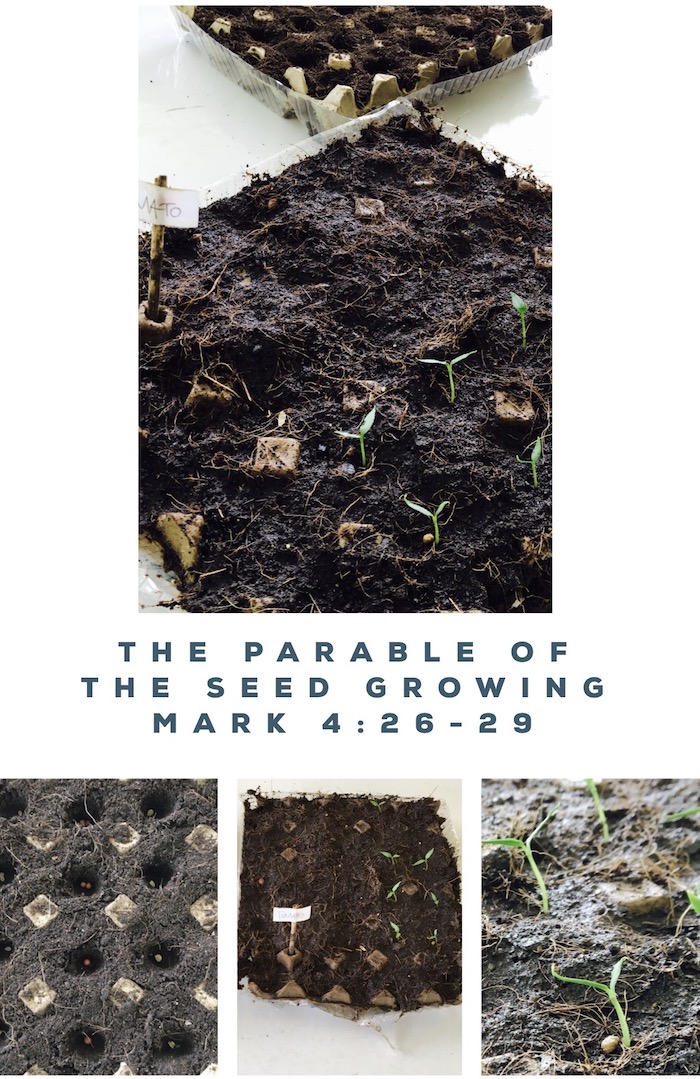Like much of the world’s population, during the height of the Covid-19 global pandemic the Thai government urged all non-essential employees to stay at home to halt the spread of the virus. This meant our family, like so many others, immediately had our schedules cleared and for the first time in a long time we were left wondering what we should do with all our extra at-home time.
One activity I took up was a bit of gardening. I started using those cardboard egg trays filled with soil to plant various vegetables like peppers, cilantro, snap peas, basil, and ocra. I was especially excited about these heirloom tomato seeds I purchased online and had shipped to me because it has been impossible to find this type of large tomato that we enjoyed so much back in the USA.
So I planted, watered, and then waited. I had varying levels of success, but I’d say within a few days not all, but the majority of the seeds I planted had sprouted and were looking great, but nothing was happening with my tomato seeds. I kept on trying and out of around 20-30 tomato seeds I had one, single, solitary tomato sprout (which I am still watering and hoping will turn into a fruitful plant). Disappointing? You bet. Any spiritual connections? You bet.
Maybe you see where I'm going with this, but it occurred to me when yet again I dropped 10 more tomato seeds into an egg tray. This whole situation brings Mark 4:26-29 to mind. I don’t think I’ve ever heard this little known parable preached (or maybe I just forgot), but Mark 4:26-29 has become a foundation for the vision of Church planting God has given our family. This kingdom parable is often called the “Parable of the Seed Growing” and reads,
And he said, “The kingdom of God is as if a man should scatter seed on the ground. He sleeps and rises night and day, and the seed sprouts and grows; he knows not how. The earth produces by itself, first the blade, then the ear, then the full grain in the ear. But when the grain is ripe, at once he puts in the sickle, because the harvest has come.”
In our time out in the Thai neighborhoods sharing the Gospel and Bible stories we always ask these two questions after reading and telling a story from Scripture:
“What does this story teach us about God?”
“What does this story teach us about Man?”
Please do think about answers to these questions yourself, but also allow me share how this parable has become our guiding principle in Church Planting Ministry. In this parable there are two characters or forces at work. The first is obvious- the man, who goes about his work diligently (sowing, tending, and harvesting). But there is another character and force at play which is behind the mysterious action of this tiny seed being placed in soil and growing into a fruitful plant- the Spirit of God. Without the scientific understanding we have today of cell division, DNA and genes being turned on within the fertilized ovule, the whole idea of a seed turning into a fruitful plant must have been quite a mystery for Jesus’ first century audience… truly even now with a scientific understanding God’s beautifully complex creation is perhaps even more awe inspiring.
So what does this teach us about God and man? Roles. Like the farmer our role is to sow, tend, then harvest. It is God’s role to cause the growth. So how is this our guiding principle for Church Planting you may be wondering?
- The man first goes to the field. We are commanded by Jesus to go. Go where? To the lost (from the next door neighbor to the villager on the other side of the world).
- The man sows. It is our (all Christians- not just missionaries) job to sow the seeds of the Gospel. How much? Maybe 2 Cor 9:6 has a helpful principle.
- The man does not cause the seed to grow, but no doubt he tends it when it does sprout. Likewise we can not open hearts to Jesus- that is the Spirit’s job, but when God does open hearts to His Gospel it is then our job to “Teach them to obey all the Jesus commanded” (Matt 28:19-20)
- When the grain is ripe he harvests. Like the farmer harvesting and gathering we gather believers into the community of Christ called the Church. And what do all farmers do with a portion of the harvest? They take it back into the open fields to sow. Additionally, most farmers don’t work alone, but they are raising up the next generation of workers in the fields teaching them all the simple skills.
So what about my tomatoes? Should I throw in the towel and just give up? Not a chance! I want my tomatoes and I’m not going to let a little thing like failure stop me.
I’ll let you make the rest of the Spiritual connections with my tomato situation, but the reality is we are sowing the Gospel broadly here in Thailand and although we’ve seen some exciting small sprouts we have yet to see that big, beautiful, fruitful plant. So do we give up? Not a chance. It is God’s desire that disciples are made of all nations and We believe God has sent us here to Thailand for His glory in that work, so like faithful farmers we have a lot of hard, but rewarding work ahead of us. Please pray Luke 10:2 with us daily at 10:02AM, “And he said to them, “The harvest is plentiful, but the laborers are few. Therefore pray earnestly to the Lord of the harvest to send out laborers into his harvest.”



